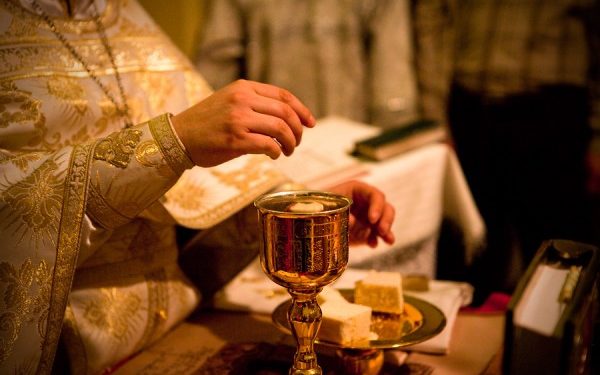The religious services will be conducted with the participation of faithful from May 15. After consulting with the competent authorities, the Metropolis decided to implement a number of hygiene rules with the aim of conducting religious services without difficulties with the participation of faithful.
The Metropolis decided that the Holy Communion would be offered according to with the Typikon of the Divine Liturgy of St. James while emphasizing that the priests will be given details.
The Metropolis of Austria also announced that during the services the ratio of one person per 10 square meters in the temple will be strictly observed, with the faithful keeping at least a 2 m distance between them, wearing masks. The church employees will clean and disinfect regularly the surfaces and various equipment.
Before entering the church there will be antiseptic while the Metropolis recommended that vulnerable groups stay at home.
Moreover, if due to the size of the church, a small number of believers can participate in the services, it is recommended to organize the participation by registration.
Regarding the Holy Communion, the Metropolis stated that we share the body and blood of Jesus Christ to be in communion with Him. “So we firmly believe that the Holy Communion is the source of Life and Health of soul and body and it will never be a way of transmission or cause of any disease. We consider it very important, after many weeks of isolation, to allow the faithful to participate in the Divine Liturgy again so that they can receive the Holy Body and the Holy Blood of Christ.”
However, it was pointed out, “Of course we do not disregard the lack of faith, that is, trust in Christ, something we can see that it exists around us. It was, therefore, decided to follow the centuries-old tried and tested practice of the offering the Holy Communion, according to the liturgical and canonical tradition of the first millennium of our Church and the typikon of the Divine Liturgy of St. James, which we sometimes perform annually in our local Church. This centuries-old liturgical practice will be implemented temporarily for a limited time in our churches.”















